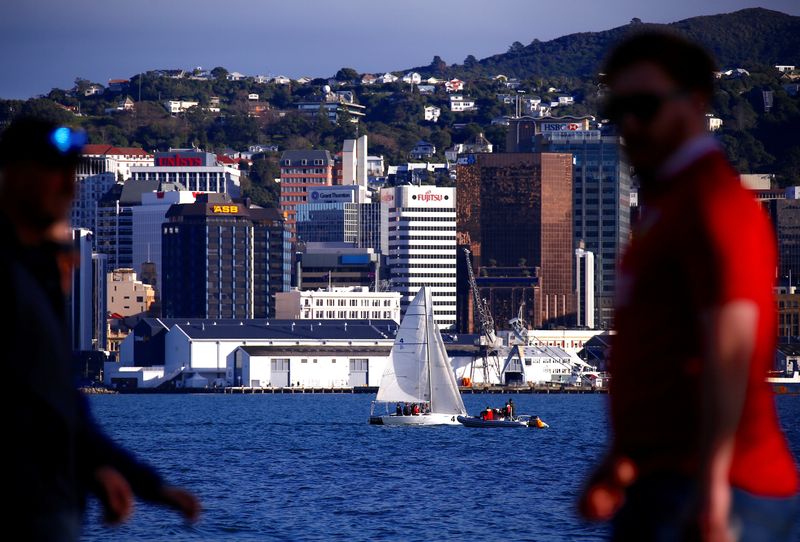Select Language

By Lucy Craymer
WELLINGTON (Reuters) -New Zealand's economy shrank in the first quarter as the central bank's aggressive hiking of interest rates to a 14-year high hurt businesses and manufacturers, while bad weather hit farms, putting the country into a technical recession.
Official data out on Thursday showed gross domestic product (GDP) fell 0.1% in the March quarter, in line with a Reuters poll, and followed a revised 0.7% contraction in the fourth quarter. With two quarters of negative growth, the country is now in a technical recession.
Annual growth slowed to 2.2%, Statistics New Zealand data showed.
The March 2023 quarter included the initial impacts of Cyclones Hale and Gabrielle and teachers’ strikes.
"The adverse weather events caused by the cyclones contributed to falls in horticulture and transport support services, as well as disrupted education services," said Jason Attewell, economic and environmental insights general manager at Statistics New Zealand.
The weakness in the economy will not be seen as a negative by the central bank, which has said it needs economic growth to slow to dampen inflation and inflation expectations.
The contraction will likely add to expectations that the cash rate has now peaked, economists say.
The Reserve Bank of New Zealand has undertaken its most aggressive policy tightening since 1999, when the official cash rate was introduced, lifting it by 525 basis points since October 2021 to 5.50%. However, it has signaled that it has finished hiking.
Before the first-quarter GDP figures were released, the central bank had forecast the country would enter a recession in the second quarter of 2023, while Treasury's updated forecasts in May expected the country to avoid recession.

